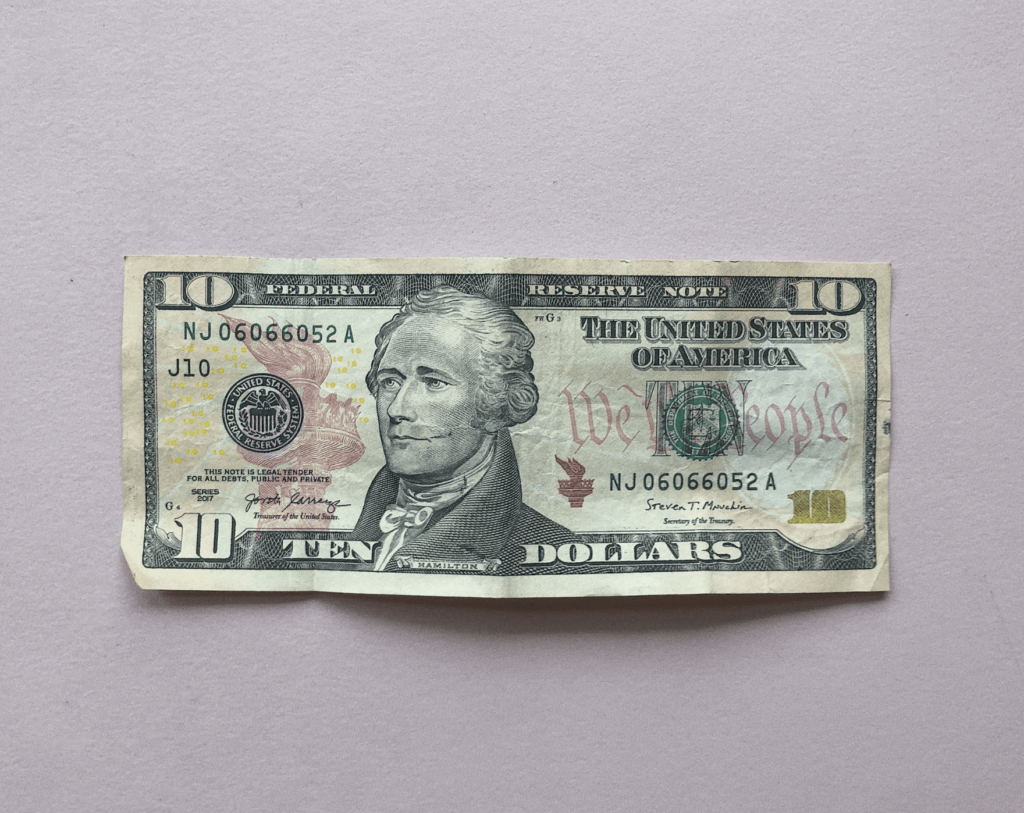Many businesses wonder if they can legally impose minimum purchase amounts on customers paying with credit or debit cards. The short answer—yes, and no.
If certain conditions are met, the federal government allows merchants to set minimum purchase amounts for credit card transactions. But minimum purchase amounts for debit card transactions are not allowed.
Before you decide to implement a minimum purchase policy for your business, you need to understand the laws imposed at both the federal and state levels. It’s also worth noting that credit card networks have their own rules about minimum transaction requirements. All of this, and more, will be covered in greater detail throughout this guide.
One quick disclosure note before we dive in—this is not legal advice. Federal and state laws are constantly changing, so make sure you double-check the most up-to-date laws in your area before imposing or enforcing any new policies.
What is a Minimum Purchase Amount?
A minimum purchase amount is a transaction value that’s imposed by a merchant for consumers who want to pay with a card.
For example, a restaurant might have a $5 minimum purchase amount on all credit card transactions.
So if someone wants to buy a slice of pizza for $2, the restaurant’s policy would prevent them from using a credit card to buy it. They’d have to use another form of payment, like cash or a debit card, or buy something else to meet the $5 minimum.
To be clear, minimum purchase amounts are completely optional. In this scenario, the restaurant can process a $2 transaction (meaning they have the ability to run a $2 credit card charge), but they’re choosing not to do it.
The purpose of a minimum purchase amount is to avoid credit card processing fees. For a $2 charge, a merchant might have to pay over $1 in transaction fees. With over 50% of the sale going to processing fees, the merchant would likely lose money on the sale.
Are Minimum Purchase Amounts Legal?
Some minimum purchase amounts are legal, but specific guidelines must be followed. Minimum purchase amounts are only legal for credit cards, but businesses are prohibited from imposing minimum purchase amounts on debit cards.
We’ll break down the exact details of minimum purchase amounts for credit cards and debit cards in greater detail below.
Minimum Purchase Amounts For Credit Cards
Merchants are legally allowed to set a minimum purchase amount of up to $10 for credit card transactions. There are a few exceptions to this rule for specific types or organizations.
While the highest allowable purchase amount for credit card payments is $10, businesses are allowed to set minimums lower than this amount. But the policy must not exceed $10, or the business would be in violation of federal law.

Credit card processors and card networks also have their own rules regarding minimum purchase amounts. While they can’t legally prevent you from setting a $10 minimum for credit card payments, they can revoke your right to accept certain cards if you don’t follow the rules set forth in your merchant agreement.
The exact rules vary by processor and card network, but here’s the general summary that’s universal for all cards. All card brands and banks must be treated equally by the store’s policy.
For example, a merchant can’t require a $10 minimum for American Express cards but not require minimum purchases for customers paying with Visa or Mastercard. Merchants are also prohibited from imposing minimum purchase amounts for one issuing bank but not others—meaning you can’t impose credit card minimums on Chase-branded plastic but lift the requirements on cards bearing the Wells Fargo logo.
Minimum Purchase Amounts For Debit Cards
In most cases, businesses cannot impose minimum purchase amounts for debit card payments.
Fortunately, debit card payments are generally cheaper to process than credit cards. The maximum interchange rate for debit cards issued by large banks is set at 0.05% + $0.21 per transaction. This is significantly lower than average credit card fees, which can range anywhere from 2% to 3.5% per transaction.
The exact cost for a business to process a debit card payment depends on multiple factors. If you’re on an interchange-plus pricing plan, then your inability to set a minimum purchase amount shouldn’t be a problem because your fees will be minimal.
But some businesses on a flat-rate plan pay the same amount for all credit cards and debit cards accepted. In this scenario, accepting debit cards for low-ticket transactions will be expensive.
It’s also worth noting that your debit card routing can impact your fees. So your debit card transaction fees can fluctuate depending on whether the card is routed as a PIN debit or signature debit transaction.
Why Minimum Purchase Amounts Are Allowed (For Credit Cards)
Before 2010, the rules associated with minimum credit card charges were governed by the credit card networks. Visa, Mastercard, Discover, and American Express all prohibited merchants from imposing minimum purchase amounts, and this language was reflected in all merchant processing agreements.
Why?
The answer is simple—credit card brands and processors don’t make money if cards aren’t used. So if businesses discouraged customers from paying with a credit card, processors and card networks would not earn any money through processing and interchange fees.

This all changed in 2010 when Congress passed the Dodd-Frank Wall Street Reform and Consumer Protection Act. The general theme of the Dodd-Frank Act was to tighten the reckless behavior of big banks that contributed to the 2008 market crash.
But in terms of credit card processing, the Durbin Amendment of this legislation changed the way minimum purchase amounts were governed.
In simple terms, the federal government ruled that nobody, including payment card networks and processors, could prevent businesses from setting a minimum or maximum dollar value on certain forms of payment.
The ruling was set forth to protect businesses from losing money on small-ticket transactions.
Is it Legal For a Business to Only Accept Cash?
Yes, it’s perfectly legal for businesses to impose a cash-only policy. There are no laws preventing merchants from accepting just cash or saying that businesses must accept credit card and debit card payments.
However, businesses cannot pick and choose when to only accept cash and when to accept credit and debit card payments.
For example, a business that accepts credit and debit card payments from one customer can’t then tell another customer that they’re forced to pay with cash as a way to avoid processing fees.
It’s also worth noting that strictly accepting cash is only viable for certain types of businesses. It only works for brick-and-mortar businesses conducting in-person transactions. You might also be turning away customers who don’t carry cash or prefer to pay using a card.

Pros and Cons and Imposing Minimum Purchase Amounts
If you’re thinking about imposing a minimum for credit card purchases at your business, you should weigh the advantages and benefits before making a decision.
Here are some considerations to keep in mind:
Pros
- Avoid losing money on small-ticket transactions
- It’s a simple policy to enforce if you accept credit cards
- A minimum transaction amount can improve profit margins
- Encourage customers to pay with cash on small-ticket sales
- Lower credit card processing fees
Cons
- You could lose business from customers who don’t carry cash
- Not effective if the majority of your transactions are higher than $10
- It could frustrate customers and make them think negatively about your business
- You’d need to keep extra cash in your register to deal with cash transactions
- You could be in legal trouble if your policy is applied incorrectly
- Credit card companies and processors could revoke your rights to accept certain cards if you don’t follow your processing agreement
Imposing a minimum for credit card payments is just one way to avoid merchant fees. You could also consider surcharging transactions to offset those costs or using cash discounts.
Additional Reading: Can You Pass Merchant Fees to Customers?
Key Takeaways: Debit and Credit Card Minimum Charge – Illegal Or Legal?
In summary, businesses are not allowed to set a minimum purchase amount for consumers paying with a debit card. Minimum transaction amounts are legal for credit card transactions—as long as the minimum does not exceed $10, and the policy is the same for all card brands and all issuing banks.
Legality aside, you should think twice before you implement a minimum purchase requirements for card payments.
Adding a minimum purchase requirement really only makes sense for businesses with lots of low-ticket transactions. If you’re selling items that cost $1 or $2, then imposing a minimum on credit cards can help prevent credit card processing costs from eating away at your profit margins.
Here’s something else to consider—you might be overpaying for credit card processing. Rather than forcing your customers to pay a minimum, you can look for other ways to save money on credit card processing.
Contact our team here at Merchant Cost Consulting for a free expert analysis of your processing fees. We’ll tell you how much money you can save on credit and debit card processing without having to switch processors.

